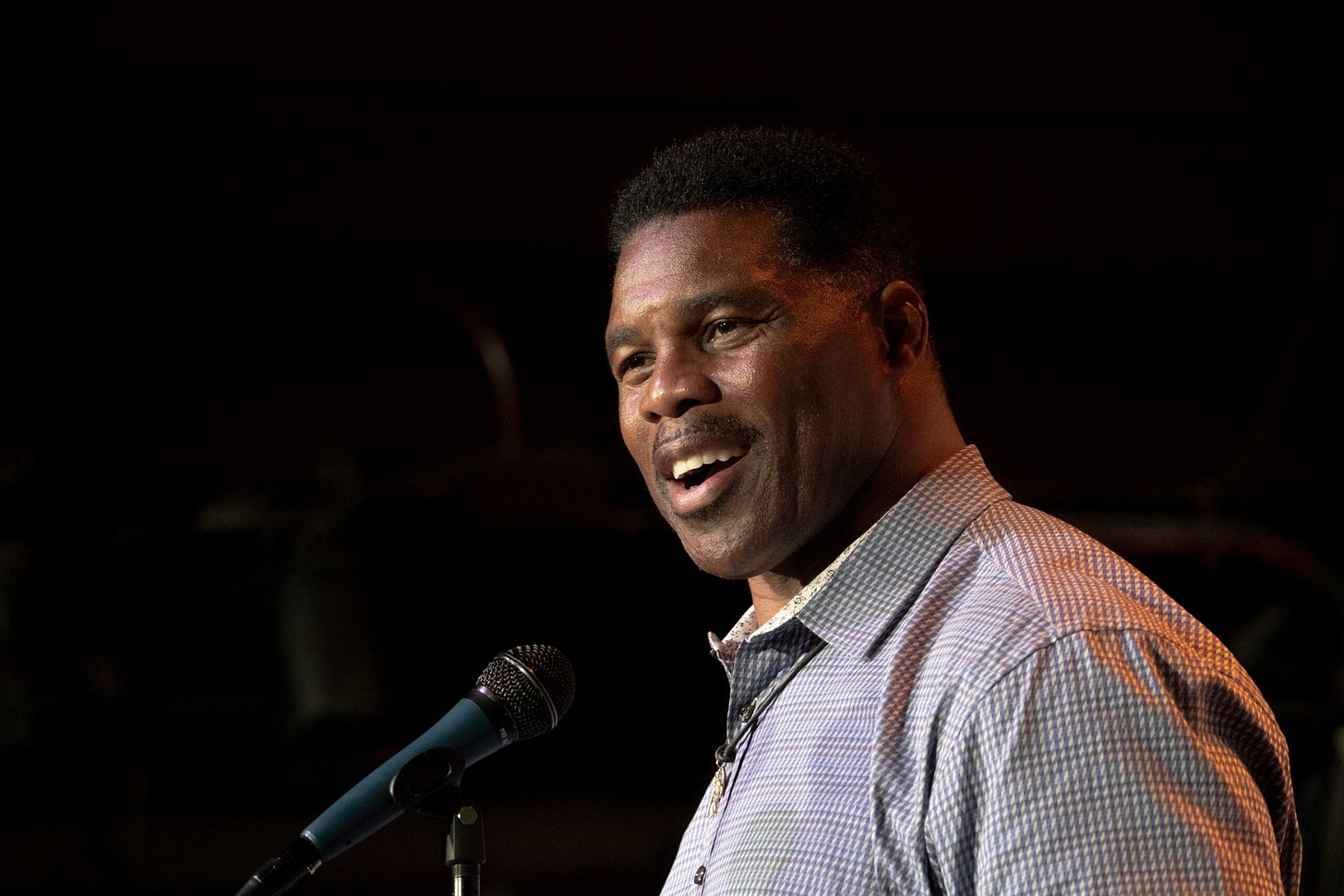
Herschel Walker Allegations: Will He Drop Out of the Race?
Will he try to tough out the firestorm of controversy arising from the new allegations that he paid for an abortion?

Last night’s Daily Beast report that Herschel Walker, the “no exceptions” pro-life Republican senatorial candidate in Georgia, allegedly paid for a girlfriend’s abortion back in 2009 is the latest fiasco in a perpetually chaotic campaign. The same question arises again and again: Will Walker quit the race, or will he hunker down and try to survive this latest political firestorm?
In the Daily Beast article, the unnamed woman provided receipts for the procedure as well as “an image of a signed $700 personal check from Walker” and a get well card apparently bearing Walker’s signature.
Walker immediately took to Twitter to deny the allegations, calling the report a “repugnant hatchet job from a democrat activist” and promising to sue the Daily Beast this morning over “this defamatory lie.” Then, in an appearance on Sean Hannity’s Fox show, Walker stumbled through his responses to direct questions, ultimately repeating the claim that he had “never asked anyone to get an abortion” and that the allegation is “a lie”:

Before going further, we should acknowledge the human pain and tragedy that’s led to such a political mess. Recall all the other fabrications and unsavory behaviors that have already come to light over the course of this campaign, including Walker’s lies about being a college graduate and valedictorian and about serving as a law enforcement agent; the deeply disturbing story of Walker’s playing Russian roulette; and the allegations of beating and serially cheating on his ex-wife or of secreting away children. These are real people, not characters in a political drama for the public’s entertainment. The Republican officials who promoted Walker for the Senate should be ashamed of putting forward this deeply flawed candidate.
Back to politics: Will this latest revelation have any effect on Walker’s electoral prospects? National Republicans last night signaled their continuing support for Walker. But there are probably Republican officials at the state and national levels wondering if there’s a way out, perhaps by pressuring Walker to quit and fielding someone else—maybe one of the five men Walker beat in the primary.
So could Walker brazen it out—as he has said he intends to do? The answer is yes. And the reason can be summed up in two words: Access Hollywood.
There was a time when an ostensibly pro-life politician asking his mistress to get an abortion would be a career death knell. But Donald Trump’s presidential campaign modeled how to overcome the most sensational disclosures: have no shame, label the accusations either fake news or harmless locker room talk, embrace the fallibility as a humanizing feature to be contrasted against elites’ holier-than-thou sheen, and demonize your political opponents to make them a wholly unacceptable alternative. If Trump can survive being recorded on camera bragging about sexually assaulting women and still win the Republican presidential nomination and the White House, Herschel Walker will likely be able to survive the controversy over an accusation from thirteen years ago that he denies.
More to the point, Walker’s continuing candidacy hinges on three propositions: (1) Running as Republican in a red state with a Trump endorsement is sufficient to win the election. (2) Those who are turned off by Walker’s questionable character and readiness for office have already removed their support. (3) Better to have a sure vote for Mitch McConnell’s agenda in a Republican majority Senate than to let a victorious Raphael Warnock leave Vice President Kamala Harris with the tie-breaking vote.
For Walker, deep character flaws are just opportunities for divine redemption. Competence is minor consideration, so much so that Walker is leaning into the idea that he may not be smart enough for the job. And McConnell himself, along with most of the party, has endorsed Walker in spite of his many shortcomings. In an environment as hyperpartisan as ours, the party he belongs to becomes more important than any action he was a party to. A poll from two weeks ago has 8 in 10 registered voters for Walker say they are supporting him because he is the Republican nominee or because they are voting against Warnock.
This is, of course, not to say Walker is a shoo-in for victory. The latest polls suggest that Georgia’s senatorial race is somewhere between a toss-up and Warnock leading by 5 points. Walker is polling well behind Republican gubernatorial candidate and incumbent Brian Kemp among GOP voters, white evangelicals, and even black voters—Kemp, running against Stacey Abrams, is getting twice as many black voters (12 percent) as Walker (6 percent).
It remains possible that the race could still tilt significantly in one direction or another. The Walker-Warnock debate still apparently scheduled for October 14 may have an effect, and last night’s new abortion allegations—and what they imply about Walker’s integrity and hypocrisy—could move enough voters away from Walker to give Warnock a significant edge. But don’t be surprised if Walker’s poll numbers don’t drop very far at all. If he decides to stay in the race, Georgia’s ride-or-die Republican voters are likely to stick with him.




